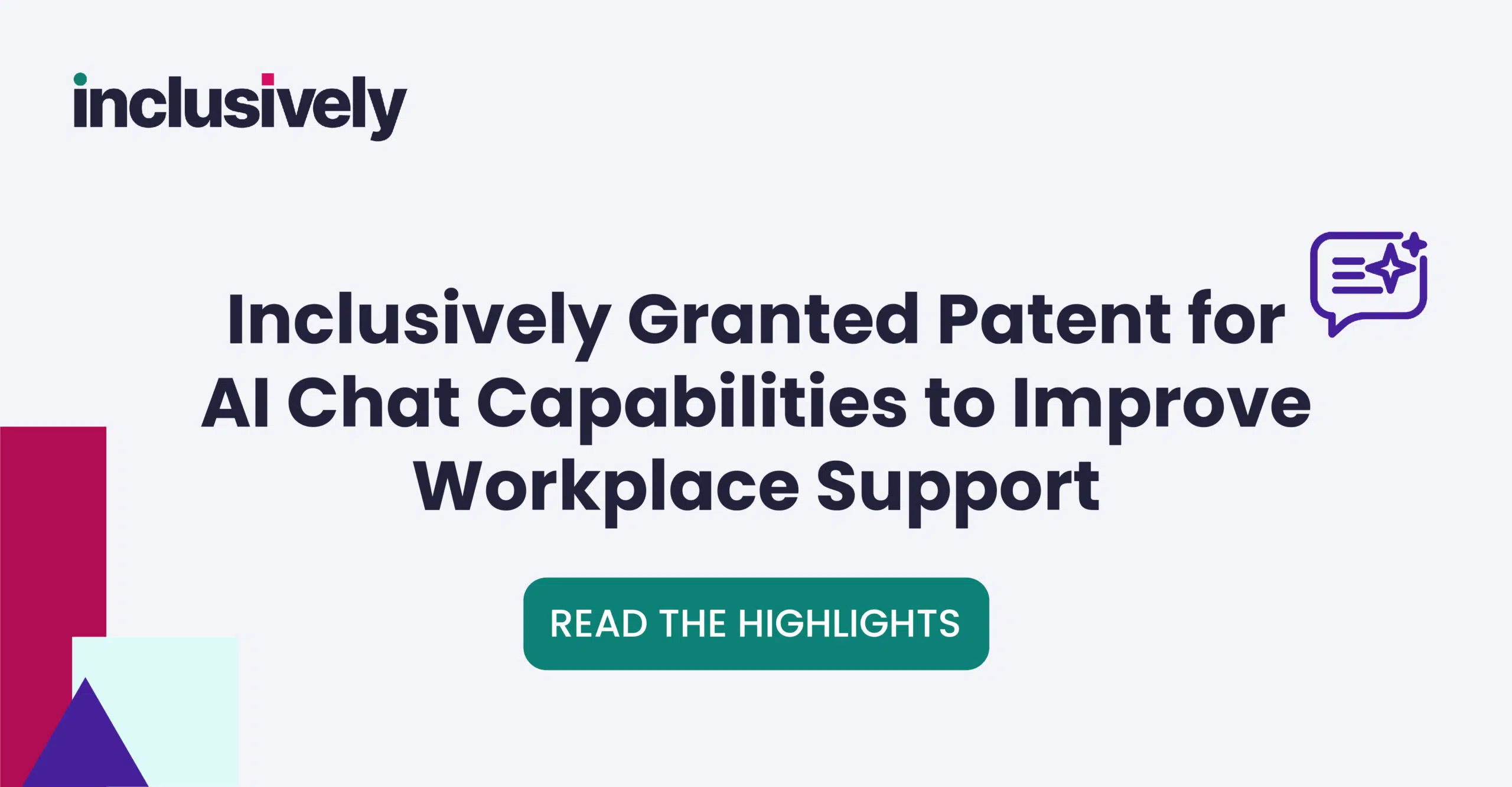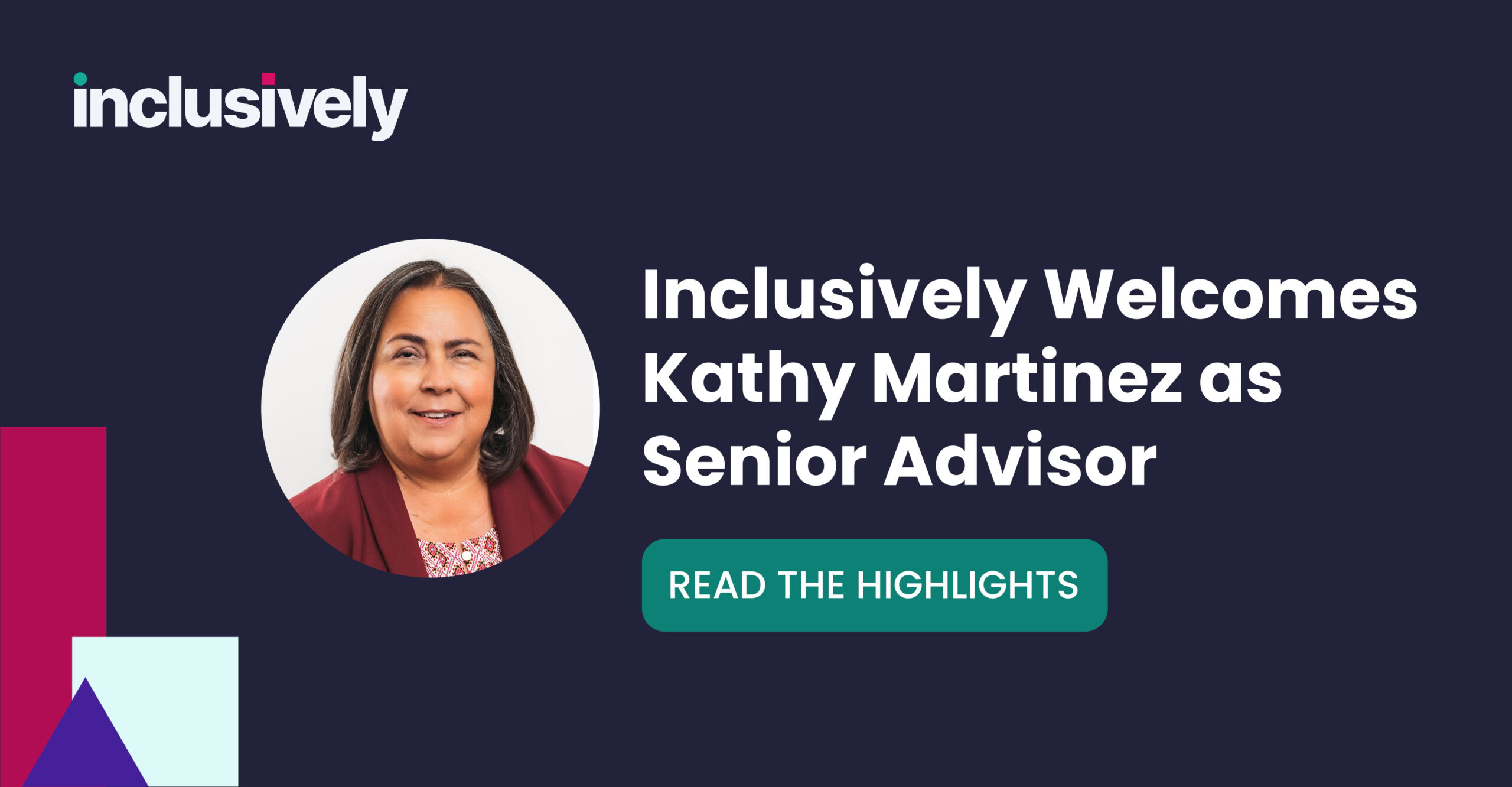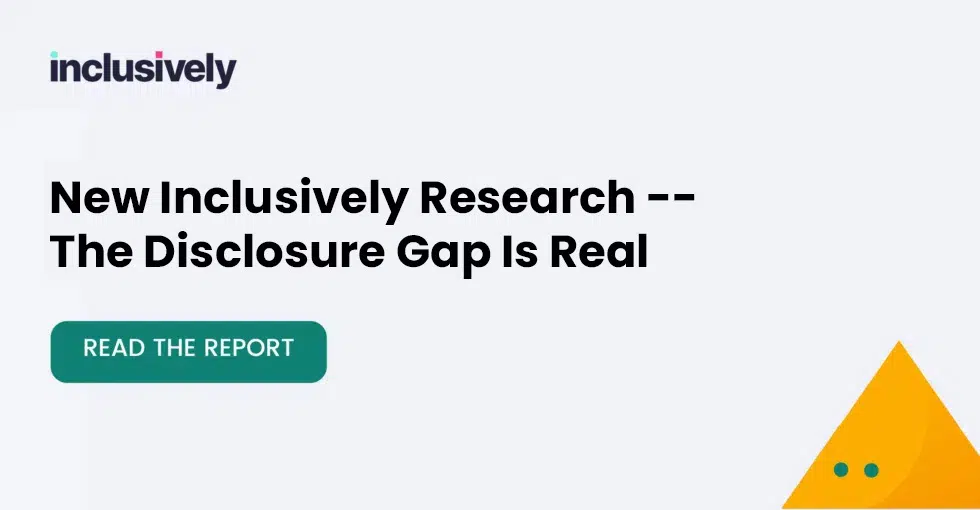Welcome to the first installment of our Inclusive Leadership Series, launched in celebration of Disability Pride Month. This Q&A series illuminates extraordinary leaders championing disability inclusion within their organizations and how their DEI strategies, triumphs, and lessons learned are making workplace cultures more inclusive for all employees.
In our first feature, we meet Louise Stone (she/her), Head of Recruitment and Community Partnerships at auticon, an award-winning social innovation and autistic-majority company. Auticon specializes in placing autistic tech consultants, allowing clients to not only experience outstanding autistic professionals first-hand but achieve their diversity goals and improve the economic and social conditions of the autistic community through quality, inclusive careers.
Q: Tell us about your role within auticon and how you’re tackling disability inclusion as a key pillar of your DEI strategy.
A: auticon is a social enterprise with the mission of employing professionals on the autism spectrum in technology careers. We proudly hold the distinction of being the largest autistic-majority company in the world. Due to our unique business model and mission, neuroinclusion is at the heart of our work rather than a separate DEI strategy.
My role at auticon encompasses three key areas. The biggest part of my role currently is in recruiting. I have contributed to the design and fine-tuning of our autism-friendly recruitment approach and oversee the entire process from beginning to end for every US employee. Our process aims to be informal and conversational, allowing us to genuinely get to know each individual, their interests, and their specific needs. It involves a series of “informal chats” where we delve into their technical background, interests, ideal work environment, and support requirements. We also utilize self-report surveys to assess their familiarity with various technical tools and determine their support needs in the workplace. By employing this comprehensive approach, we develop a well-rounded and honest profile of each candidate, enabling us to find roles that truly match their needs and preferences. Although our focus is on autism, we acknowledge that individuals may have co-occurring diagnoses, and our process encourages honesty regarding what works and what doesn’t, fostering mutually successful long-term career paths.
Additionally, I collaborate with community partners, such as universities, vocational rehabilitation organizations, job training entities, and regional centers. These partnerships are vital as many autistic job seekers are unaware of companies like auticon, leading them to either withdraw from the job market altogether or search in the wrong places. My role here involves working with these partners to raise awareness of auticon in spaces where autistic individuals are present, ensuring we reach as many people as possible.
Finally, I am involved in our Neuroinclusion Services (NIS), a newer aspect of my role as this is a newer product/service for auticon. NIS focuses on leveraging our expertise and lived experience in recruiting, hiring, and supporting autistic and other neurodivergent professionals to teach other companies how to foster greater neuroinclusion within their own organizations.
By working across these three areas, I not only actively contribute to auticon’s mission of empowering autistic professionals to have meaningful careers, but also spread awareness to the autistic/autism community, and foster neuroinclusion in the wider technology community.
Q: What do you think has been the biggest misconception around supporting people with disabilities in the workplace? If you had one piece of advice to give to another organization who is embarking upon improving disability inclusion, what would that be?
A: The biggest misconception is that implementing neurodiversity and inclusion strategies is expensive and difficult. My advice is to take a step back and thoroughly assess your organizations’ processes and policies. This evaluation serves as the starting point for us when consulting with companies on neuroinclusion, enabling us to identify areas of strength and areas that require improvement. To many companies’ surprise, they discover that they already have successful autistic, neurodivergent, or disabled employees who are informally accommodated. These accommodations are often so simple that we don’t even perceive them as accommodations when requested. For instance, standing desks have become a popular trend as people strive for healthier, less sedentary lifestyles. Consequently, many companies now offer standing desks to all employees without giving it a second thought. However, a standing desk can be an accommodation for individuals on the spectrum or with ADHD who require movement to maintain focus.
By taking a step back and evaluating their practices, companies often realize that most accommodations and necessary changes are minimal in cost or even free. However, what is crucial is a shift in mindset. Many people still consider terms like “autistic” or “disabled” as negative, and therefore avoid conversations around these areas. Once leaders within companies evaluate their misconceptions and biases and talk to their employees, they will be able to see easy changes to make immediately as well as bigger adjustments that can be made naturally over time to complete a full transformation to inclusive practices.
Q: What shifts has your organization experienced from a cultural or client engagement perspective since prioritizing disability inclusion?
A: auticon holds a unique position as a business because we have been solely dedicated to autism and neurodiversity since our founding. However, we have had the privilege of witnessing this transformative shift occurring within many of our client organizations. I could share a ton of anecdotal stories of specific instances where
embracing neuroinclusion has benefited a client team (see our case studies for a few examples), but we actually have data showing this too.
Every year we complete a global impact survey that asks our employees and our clients about the impact working at/with auticon has had for them. Based on this survey, a large majority (68%) of our customers reported a significant positive change in their perception of autism. Even more significantly, 85% agreed that their teams felt more confident when working with autistic individuals; 85% said their understanding of neurodiversity increased substantially as a result of collaborating with auticon; and 93% acknowledged the valuable professional contributions made by auticon consultants to their projects. These contributions included greater accuracy, alternative perspectives and ideas, innovative approaches, and increased efficiency—attributes that our consultants directly attribute to their autism and other forms of neurodivergence. In addition, 86% of our clients affirmed that working with auticon consultants had a positive impact on their team’s culture as a whole.
Among these statistics, the last one is the one we get the most positive feedback on regularly. When companies decide to work with auticon, they typically anticipate gaining a better understanding of autism and neurodiversity and, of course, expect our consultants to be productive and valuable members of their team. However, many often do not anticipate the broader benefits of prioritizing neuroinclusion throughout their teams and within their greater company culture. The benefits we hear people talk about all the time include clearer communication, better teamwork, increased empathy, and a greater sense of purpose. Every time we hear this feedback, it resolidifies the power that embracing inclusive practices can have for everyone in a company.
Q: What are some of the key changes that you have personally made since learning more about disability inclusion and workplace accommodations?
A: As an autistic professional, I have always been proactive in making personal accommodations to thrive in my workplace. Before joining auticon, this involved working at small companies with a relaxed culture, allowing me to tailor my schedule and work environment to my specific needs. However, since joining auticon and becoming head of recruitment, the biggest change I have had to make has been to reassess my mindset and challenge traditional notions of what is expected in a corporate environment.
A significant part of this shift has involved giving candidates the benefit of the doubt and asking specific questions. Another aspect of this is to remember that embracing inclusion and accommodations does not mean every individual will be a perfect fit for every role or company, and not every accommodation will be reasonable for a specific role. Initially, when I started at auticon, I found myself oscillating between the two extremes of the inclusion spectrum. I would unconsciously fall into traditional corporate biases like judging someone based on an unprofessionally designed resume, for example. I had to remind myself that this is exactly what we want to work against and that, using the same example, a resume, regardless of its quality, rarely accurately reflects an individual’s fit for a role or company.
On the other end of that spectrum, I experienced moments of guilt when there would be individuals who clearly did not align with our company and/or roles currently available. I would sometimes try to problem solve over and over, attempting to accommodate them or modify our operations to fit their needs, wasting everyone’s time in the process. I had to remind myself that auticon is a tech company with specific roles that require certain skill sets. We cannot be the right fit for everyone and that’s okay.
With more companies actively embracing inclusion, my hope is that autistic and neurodivergent individuals can find their ideal workplace more easily. Companies like ours, which provide accommodations and view autism as a valuable asset, should become more commonplace. As that happens, those corporate biases will lessen, and so it will feel less painful to not be able to move forward with a candidate knowing that there are plenty of other supportive companies out there.


